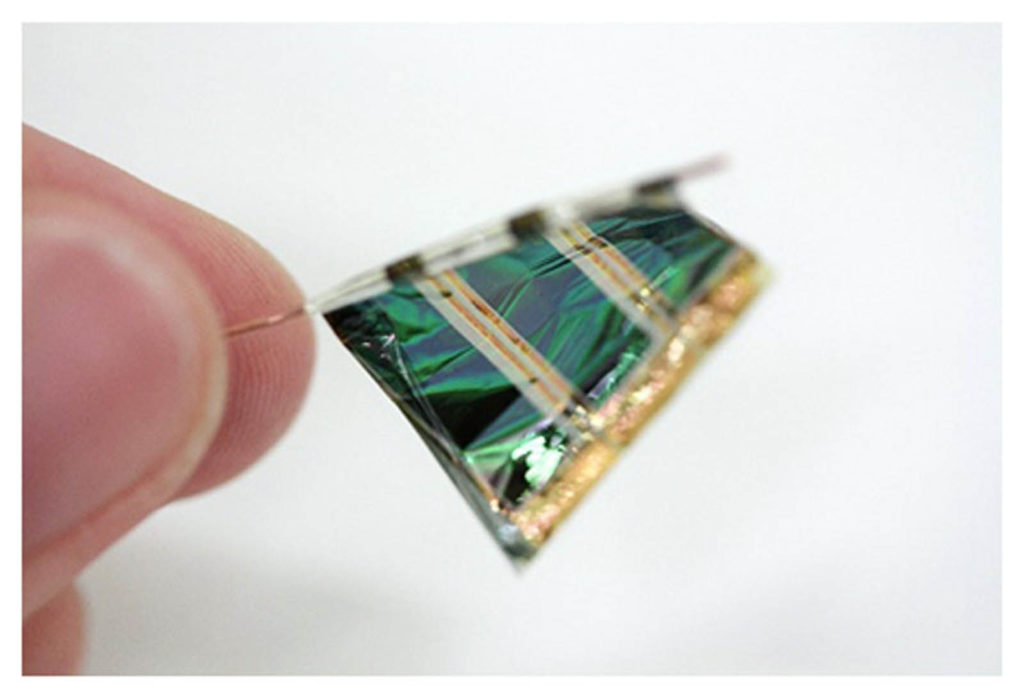
Scientists have created “an ultrathin organic solar cell that is both durable and highly efficient,” according to a recent Off Grid Energy Independence article. Organic photovoltaics also hold promise as more environmentally friendly and less costly alternatives to conventional silicon-based films.
The team of scientists from the RIKEN Cluster for Pioneering Research and RIKEN Center for Emergent Matter Science collaborated with international partners and used a simple post-annealing process to create the flexible cell.
The organic cell is reported to degrade by less than 5 percent over 3,000 hours in atmospheric conditions and simultaneously has an energy conversion ratio of 13 percent. (Compare that key indicator of solar cell performance to the ratio in silicon cells, which can be as much as 25 percent, or of rigid organic cells, which can be up to about 17 percent, according to the article.)
The team used a semiconductor donor layer developed by Toray Industries. The scientists also used a non-fullerene acceptor, which is reported to have increased the thermal stability. They experimented with a simple post-annealing process, heating the material to 150 degrees Celsius after an initial annealing at 90 degrees, the article reported. That step is thought to have increased the durability of the device because of the stable interface created between the layers.
“Our research shows that ultrathin organic solar cells can be used to supply high power in a stable way over long periods of time and can be used even under severe conditions such as high temperature and humidity. I very much hope that this research will contribute to the development of long-term stable power supply devices that can be used in wearable electronics such as sensors attached to clothes,” said Kenjiro Fukuda, one author of the study.
 TEXTILES.ORG
TEXTILES.ORG


